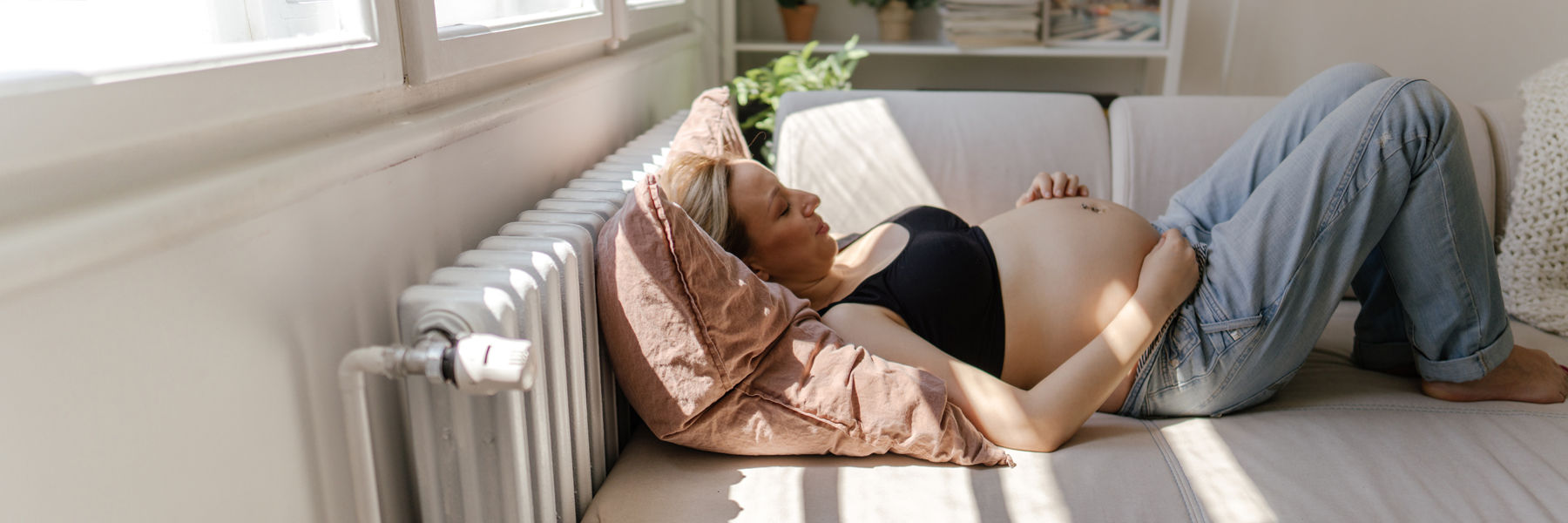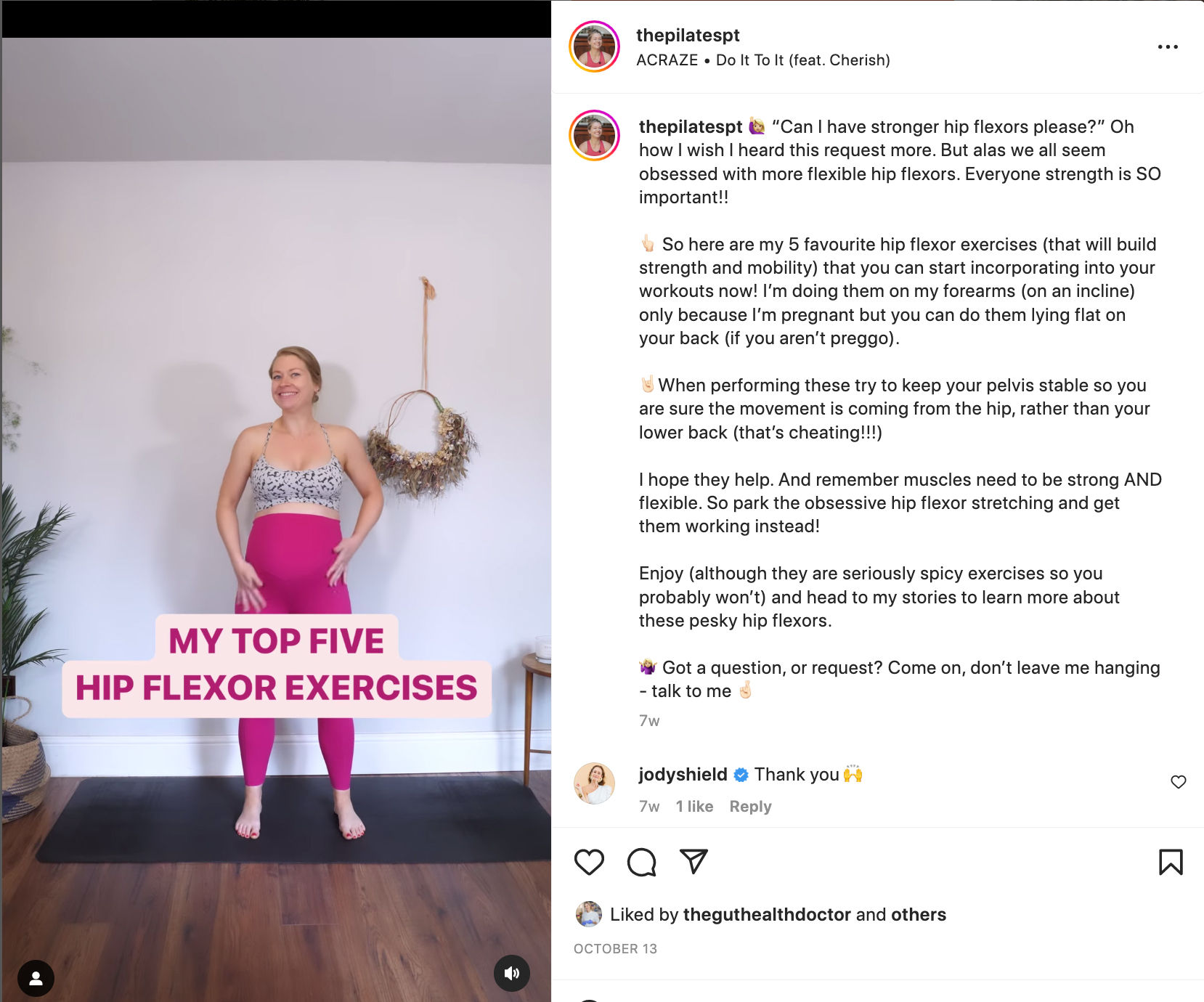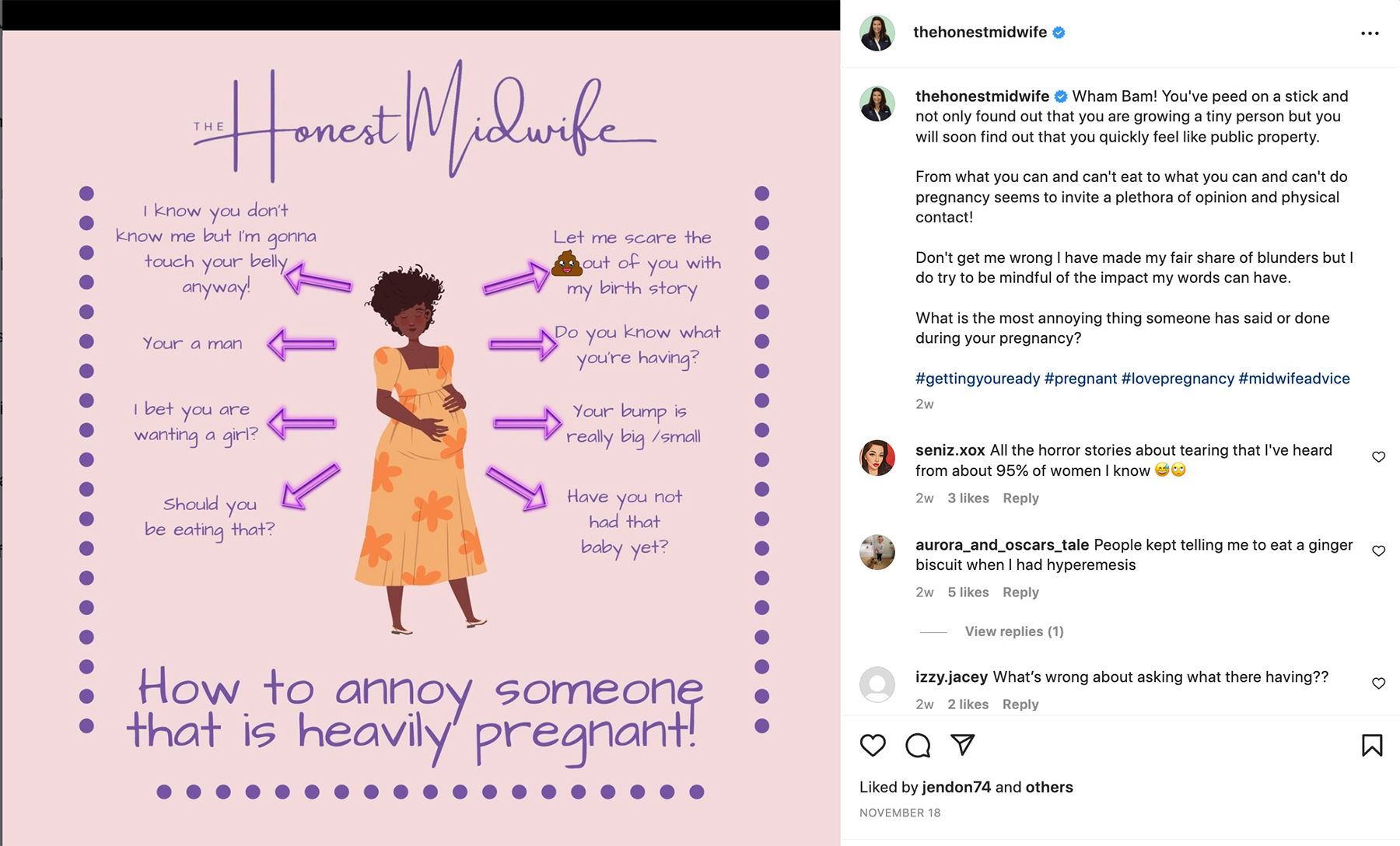Use arrow keys to navigate through the menu items. Use Tab key to navigate through the menu banners.
Your 1st, 2nd & 3rd Trimester

Your 1st, 2nd & 3rd Trimester
Find out what happens during each stage of pregnancy with our helpful guide
Congratulations, you’re pregnant!
Most pregnancies last around 40 weeks, which can be divided into three trimesters of 12-14 weeks each. Here’s what to expect in each stage.
The first trimester
Nothing can prepare you for that second line appearing on your pregnancy test. From this moment, you officially enter the first trimester.
Weeks 1-3
The first symptoms of pregnancy can feel like you’re getting your period, with sore breasts, cramping and mood swings. You may also feel a dull pain or twinge in the lower tummy with light spotting when the egg implants into your womb lining.
If you haven’t already started taking folic acid supplements, this is the time to start, as unfortunately it’s hard to get the amount of folate (the natural form of folic acid) you need from your diet alone. The NHS recommends that you take a 400 micrograms folic acid tablet every day before you're pregnant and until you're 12 weeks pregnant. This helps to prevent birth defects known as neural tube defects, including spina bifida.
If you didn’t start before you conceived don’t worry, but make sure you start now. You can pick up affordable supplements in ASDA or most pharmacies.
It’s also important to take vitamin D during your pregnancy, which keeps bones, teeth and muscles healthy, especially if you’re pregnant between September and March when we are exposed to less sunlight (vitamin D is created when our skin is exposed to summer sunlight). Again, it’s tough to get enough vitamin D from your diet alone, as our bodies need 10 micrograms of vitamin D each day. Do not take more than 100 micrograms (4,000 IU) of vitamin D a day as it could be harmful.
If you qualify for the Healthy Start scheme, you can get vitamin supplements, including vitamin D, for free if you are pregnant or breastfeeding.
Weeks 4-6
Along with a late period, there are some other tell-tale symptoms that might arrive in week four thanks to a flood of new hormones: breast tenderness, a heightened sense of smell, and morning sickness (which despite its name, can strike at any time of the day or night).
You may start craving certain foods. Bring on the pickles and chocolate ice cream! If you want to eat unusual or unsafe things (some women have extreme cravings for ice, sponges or coal), touch base with your midwife.
Increased progesterone levels can leave you feeling tired. ‘The first trimester is often the most exhausting, as this is when all your “construction work” is happening – it’s incredible to think that you’re building a tiny human!’ says midwife Louise Broadbridge (@thehonestmidwife).
Weeks 7-9
If you’ve cut down on tea and coffee you may be getting caffeine withdrawal headaches. Paracetamol is safe to take during pregnancy, and the headaches should stop soon.
You may also be heading to the toilet to pee more frequently, but it’s important for you and baby to stay hydrated, so don’t avoid drinking just to prevent loo trips.
Weeks 10-12
Your 12-week scan is a milestone moment in pregnancy. It’s so amazing to see your baby and hear its heartbeat. All being well, this is when most expectant parents share the thrilling news!
The second trimester
Welcome to what’s commonly known as the ‘honeymoon period’ of pregnancy as your morning sickness, nausea and fatigue fade away.
Weeks 13-16
You may feel a spike in energy around now, making this a good time to pick up exercising again. ‘Gentle cardio is beneficial for both you and baby – try swimming, brisk walking or cycling. Just be aware you’ll get out of breath more quickly and don’t let yourself overheat,’ says Pilates instructor, Hollie Grant (@thepilatespt).

You might also notice an increased sex drive, due to the surge in blood pumping around your pelvic area. Tell your other half to watch out!
Your bump may be more obvious now, as it’s growing around 1cm per week on average. It may be hard to squeeze into your normal clothes, which is a great excuse to go shopping. Our maternity fashion range has all you need, including luxe loungewear, cute dresses and cosy coats.
Stretchmarks can develop as your skin stretches, which causes the collagen and elastin to break. Gently massage in a stretchmark cream for softer, more supple skin.
Weeks 17-20
The hormone relaxin will make your muscles and ligaments start to loosen in preparation for labour, which can cause some aches and pains.
You may feel anxious before the 20-week screening scan, which checks that all is well with your baby. Want to know if you’re having a girl or a boy? Ask at the start of the scan so the sonographer knows to check, although not all hospitals will tell you.
Around now there’s an exciting milestone: the first time you feel your baby’s kicks! These can feel like fluttering in your stomach, or a squirming sensation. You’ll soon become aware of what patterns are normal for your baby.
Weeks 21-24
At this stage, it’s common to experience some practice contractions, known as Braxton Hicks. These can be alarming at first as your stomach can go hard, but – unlike real contractions – they shouldn’t be too painful and will come and go at regular intervals.
You might also notice:
-
Darkening of the skin in places – known as melasma. You may also see a dark, vertical line down your bump called the ‘linea nigra’
-
Your ‘innie’ belly button (if you have one) turning into an ‘outie’
-
Your hair and nails growing faster than usual
These changes to your appearance are caused by a rush of oestrogen, plus your supercharged metabolism giving your hair and nails extra nutrients. Treat yourself to some haircare goodies to enhance your healthier, shinier locks – you deserve it.
Weeks 25-28
These weeks can bring some less desirable side effects, such as breathlessness and trouble sleeping as your bump grows bigger. A maternity support pillow can help you get comfy in bed.
Now’s the time to start thinking about the gear you need for baby, from clothing and nappies to the bigger items, such as prams and cots. If you’re planning on bringing your newborn home from hospital in a car, you must have a suitable car seat.
The third trimester
It’s almost time to meet your little one! As you head into the final stretch, you might start feeling like your bump can’t get any bigger – and you might be starting to worry about giving birth. It’s normal for your emotions to wobble during this time, as your body prepares to bring your baby into the world.
You might have heard the old saying about ‘eating for two’ during pregnancy. Although you may feel hungrier during pregnancy, this is in fact a myth – there’s no need to eat more, even if you are pregnant with twins! The only exception is during your third trimester, when you need to eat an additional 200 calories per day. This works out as two slices of wholemeal toast with spread or a yogurt pot with a banana.
Weeks 29-32
Your baby will (hopefully!) change position to head down, ready for birth – but don’t worry if your midwife tells you they’re still feet down. Babies can move into their correct position at any point.
This is a great time to hold a baby shower to celebrate your baby-to-be – you’re past the riskier stage of pregnancy yet not too close to giving birth.

Weeks 33-36
If you’re experiencing back ache or joint and hip pain you may get relief by trying third trimester exercises and stretches – find videos on YouTube.
Your baby will also move down into the pelvis and engage for labour, which can make your baby and bump suddenly feel low. This gives more space in your abdomen, so can improve symptoms of heartburn and shortness of breath.
Now’s the time to pack your hospital bag ready for giving birth – it’s not something you want to think about when you start having contractions!
You may also get a burst of energy or sudden urge to clean the house – you’re ‘nesting’ so make the most of it!
What’s next?
Babies are expected to arrive between weeks 37-42 of your pregnancy. The early signs of labour include cramping in your back and contractions. Call your midwife or maternity unit if you think labour has started. The usual advice is to head to the hospital if your waters break or when your contractions are regular, strong, and roughly five minutes apart, or last at least 60 seconds.
Giving birth is exciting and scary, but soon you’ll be meeting your baby, and it’ll all be worth it.
Help & Customer service
- Help Centre
- How to shop
- Product recalls
Payment Methodslist with 8 items
- Asda Group of Companies
- Modern Slavery Statement
- Electrical Waste Recycling
- Terms & Conditions
- Customer Review Policy
- Privacy Centre
- Cookie Settings
- Accessibility
© ASDA 2025